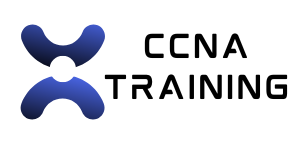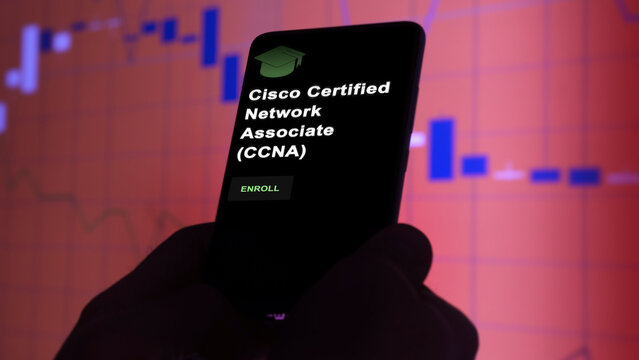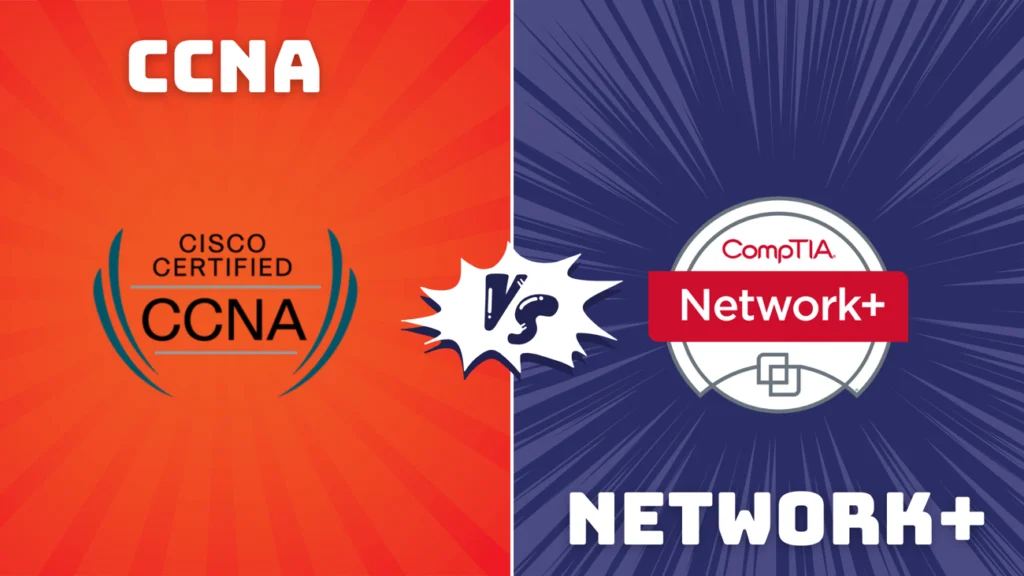In the fast-paced world of networking and IT, staying ahead means keeping your skills sharp and your certifications up-to-date. The Cisco Certified Network Associate (CCNA) has long been recognized as an essential credential for networking professionals, validating their ability to install, configure, and troubleshoot medium-sized networks. With advancements in technology reshaping the industry, Cisco periodically updates its certification exams to ensure they reflect current trends and challenges.
The latest CCNA exam update brings a host of new topics, focusing on modern networking demands like security, automation, and wireless technology. Here’s a detailed look at what’s new in the CCNA exam and how it prepares candidates for today’s networking landscape.
1. Increased Focus on Security Fundamentals
With cyber threats and data breaches on the rise, network security has become a top priority. The updated CCNA exam now includes more in-depth security topics to prepare candidates for real-world challenges. These include:
- Threat Intelligence: Understanding various types of threats and vulnerabilities.
- Security Best Practices: Implementing measures to secure network devices and sensitive data.
- Access Control Models: Applying authentication, authorization, and accounting (AAA) services.
This expanded focus ensures CCNA-certified professionals are equipped to design networks that prioritize security.
2. Network Automation and Programmability
Automation and programmability are reshaping the way networks are managed, making them faster, more efficient, and scalable. The updated CCNA exam introduces:
- Introduction to APIs: Basics of using APIs to interact with and manage network components.
- Automation Tools: Understanding tools like Python and Ansible to automate repetitive network tasks.
This inclusion reflects the shift towards software-defined networking (SDN) and prepares candidates to work in modern, automated environments.
3. Enhanced Wireless Networking Topics
As wireless technology becomes more integral to daily operations, the CCNA exam places greater emphasis on wireless networking concepts. Key updates include:
- WLAN Configuration and Management: Configuring and managing wireless LANs.
- Wireless Security Protocols: Understanding protocols like WPA3 for securing wireless connections.
These additions ensure candidates are prepared to manage wireless infrastructure in increasingly connected workplaces.
4. IPv6 Integration
As IPv4 addresses become scarce, IPv6 adoption is growing. The CCNA exam now incorporates more comprehensive coverage of IPv6, including:
- IPv6 Addressing: Configuring and managing IPv6 addresses and protocols.
- Transition Mechanisms: Techniques for transitioning from IPv4 to IPv6, such as dual-stack and tunneling.
This ensures candidates are ready to work in environments using next-generation IP addressing.
5. Introduction to Software-Defined Networking (SDN)
The shift to software-centric networking solutions is captured in the CCNA exam’s introduction to Software-Defined Networking (SDN) concepts. New topics include:
- SDN Architecture: Understanding the components and architecture of SDN.
- Controller-Based Networking: Using network controllers to simplify management and increase agility.
This reflects the growing importance of SDN in modern network infrastructure.
6. Expanded Network Infrastructure and Services
The updated CCNA exam dives deeper into the foundational aspects of networking infrastructure, including:
- Virtualization: Applying virtualization technologies in networking environments.
- Quality of Service (QoS): Managing bandwidth to prioritize critical applications.
- NTP and Logging Services: Ensuring accurate time synchronization and effective logging.
These updates emphasize the importance of maintaining robust network performance and reliability.
7. Diversified Network Protocols
Modern networks rely on a mix of protocols for seamless communication. The CCNA update includes:
- Deeper Coverage of OSPF and EIGRP: Enhanced understanding of these routing protocols.
- Introduction to BGP (Border Gateway Protocol): Basic knowledge of this critical protocol for internet routing.
This ensures CCNA-certified professionals are familiar with the protocols driving today’s networks.
8. Real-World Exam Experience
Cisco has redesigned the CCNA exam to focus on practical, real-world scenarios. Candidates can expect:
- More Hands-On Simulations: Testing configuration and troubleshooting skills.
- Scenario-Based Questions: Encouraging critical thinking to solve networking challenges.
This ensures that passing the exam isn’t just about memorization—it’s about practical application.
How to Prepare for the Updated CCNA Exam
To succeed in the latest CCNA exam, candidates should:
- Study Updated Materials: Use Cisco Press books, the Cisco Learning Network, and other updated resources.
- Practice Hands-On Skills: Tools like Cisco Packet Tracer and GNS3 are invaluable for simulating real-world networking tasks.
- Stay Current with Trends: Follow industry news to understand the broader context of networking advancements.
Why These Updates Matter
The latest CCNA update reflects Cisco’s commitment to ensuring its certifications remain relevant in an ever-evolving industry. By addressing topics like security, automation, and cloud integration, the new exam prepares professionals for the challenges of today—and tomorrow.
Employers value CCNA-certified professionals for their broad skill set and practical knowledge, making this certification a strong stepping stone for career growth.
Conclusion: A Stronger CCNA for a Modern Network World
The CCNA certification has always been a gateway for networking professionals to launch and advance their careers. The latest updates make it even more valuable by aligning the curriculum with current technologies and industry needs.
Whether you’re new to networking or looking to update your skills, the CCNA certification offers a comprehensive path to mastering modern networking. By preparing for the updated exam, you’ll not only earn a globally recognized credential but also position yourself as a future-ready networking professional.
Stay ahead. Stay certified. Cisco’s latest CCNA exam ensures you’ll be ready for whatever the networking world throws your way.













